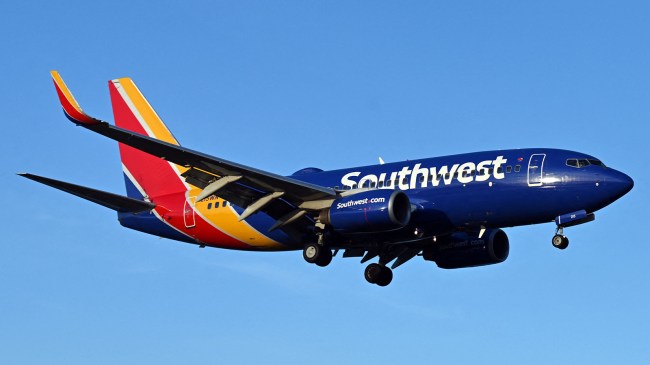
Southwest Airlines has historically set itself apart from the rest of the pack with the open seating approach it harnesses for the boarding process, but that somewhat divisive method could be on the verge of extinction as the airline takes a closer look at its finances.
The vast majority of airlines in the United States rely on assigned seating when it comes to determining where passengers are situated during a flight. However, there’s a very notable exception in the form of Southwest Airlines, which has relied on an “open seating” model since its inception in 1971.
Southwest—which doesn’t offer first or business class—asserts open seating actually results in faster boarding times, but it’s also created a fairly cutthroat culture among flyers who rely on the airline to get around.
If you want to end up in an emergency exit row or toward the front of the craft, you need to ensure you check in as quickly as possible when the window opens in order to secure a spot in the coveted “A” boarding group. However, even if you’re quick on the trigger, you may encounter a setback courtesy of people who’ve discovered an ethically questionable life hack by claiming they need assistance in order to jump the line.
As things currently stand, Southwest passengers can pay $30 to obtain “Upgraded Boarding” to ensure they’re one of the first 15 people in line or $15 for the EarlyBird Check-In that lets you secure your spot 12 hours before everyone else. While I can’t tell you exactly how much supplemental revenue those options help the carrier generate, it sounds like it’s not enough to stop it from considering a major overhaul.
According to CNBC, Southwest CEO Bob Jordan hinted open seating could become a thing of the past shortly after the airline reduced its projected growth for the year after losing $231 million in the first quarter of the fiscal year.
Jones admitted “We’re looking into new initiatives, things like the way we seat and board our aircraft” while ruling out other potential solutions like the addition of first class and checked baggage fees, saying neither of those approaches align with its philosophy.
Southwest previously experimented with assigned seating in 2006 but declined to adopt it after discovering boarding times increased by upwards of four minutes.
It seems like the most natural new approach would be a hybrid that allows people to pay a premium to select a seat ahead of time while keeping the status quo unchanged for everyone who declines to do so, but we’ll just have to wait and see what route it decides to take.
The post Southwest Airlines Might Abandon Its Most Unique Feature Amid Revenue Concerns appeared first on BroBible.
Southwest Airlines Might Abandon Its Most Unique Feature Amid Revenue Concerns
Pinoy Human Rights

0 Comments